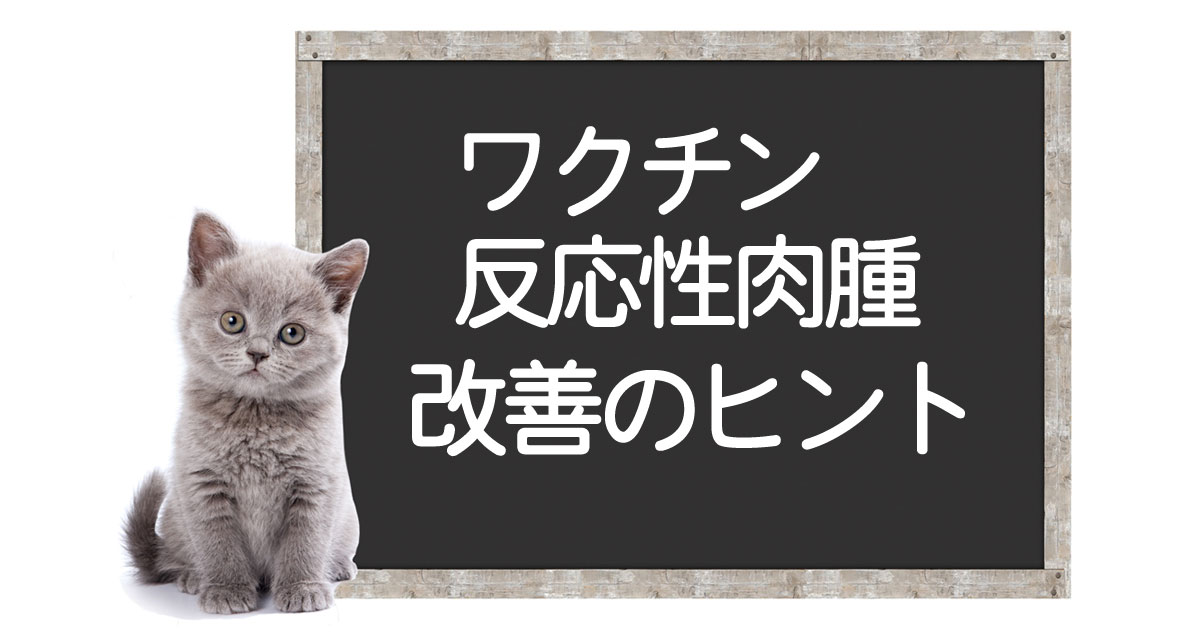Although rare, cats can sometimes develop sarcomas at the site of injections such as vaccines or antibiotics.
Vaccine-associated (induced) sarcomas are mostly classified as soft tissue sarcomas. Since it may be caused by some immune abnormalities, there is hope that using Cordy to regulate the immune system can reduce the risk of occurrence.
This page summarizes the characteristics, causes, treatments, and tips for improvement and complete recovery of vaccine-associated sarcomas.
Many cases of improvement are also introduced here. We hope this can be a source of support and a ray of hope for everyone.
目次
Can Injections Cause Cancer!?
Tumors can develop after vaccinations or the administration of certain antibiotics or other drugs, but they are most commonly associated with vaccinations. In this context, we will discuss vaccine-associated (induced) sarcomas which are a subset of injection site sarcomas.
About Vaccine-associated (Induced) Sarcomas
Although it can also occur in dogs, it primarily affects cats, with an average age of occurrence of about 10 years (or 8 years according to some reports).
Incidence rates vary by country, but there has been a sharp increase over the past 10 years.
The only vaccines statistically associated with this condition are rabies and FeLV (Feline Leukemia Virus).
Vaccine-associated (induced) sarcomas are mostly classified as soft tissue sarcomas.
- High possibility of local recurrence
- Rarely metastasizes, with almost no distant metastasis
- Generally shows poor response to chemotherapy and radiation therapy
In the case of vaccine-associated (induced) sarcomas, the malignancy is extremely high, making it a very difficult cancer to treat with a high likelihood of recurrence.
Strongly localized infiltration (less than 50% chance of complete excision by surgery) necessitates wide resection when surgically removed (extended surgery), and there are numerous cases where spinal bone must be shaved or amputation is required.
There is a 10-25% chance of metastasis to the lungs, eyes, or other areas.
Certain rabies vaccines and FeLV vaccines (feline leukemia vaccines) are said to nearly 100% of the time cause lumps (inflammatory granulomas) after vaccination. Typically, these lumps disappear over 2-3 months.
However, if the lump does not disappear within three months of vaccination, there is an increased risk of sarcoma developing secondary to inflammation. In such cases, surgical removal is recommended under the following conditions:
- Still present three months after vaccination
- Exceeds 2 cm within three months or grows within one month after vaccination
Causes of Vaccine-Responsive (Induced) Sarcoma
- Adjuvants (included in many inactivated vaccines)
- FeLV (Feline Leukemia) vaccine
- Presence or absence of viruses
There are different theories, but no definitive cause has been identified yet.
Since cats have a unique immune system, any injection could potentially cause similar cancers.
Prevention of Vaccine-Responsive (Induced) Sarcoma
- Change the vaccination site annually (it is recommended to record the vaccination site in the medical chart)
- Use live vaccines (non-adjuvanted vaccines)
- Reduce the use of polyvalent vaccines
Regarding vaccination sites, it is currently not recommended to vaccinate between the shoulder blades as it poses a high risk. It is better to vaccinate in the hind legs or around the tail.
Using the same site for vaccination each year also increases risk, so it is a good idea to record the site of vaccination in your health notebook each year.
Should you vaccinate or not?
There are arguments for and against vaccination. If your cat tends to freely go outside the house, the risk of contracting a viral disease outside is higher than the risk of cancer from vaccination, so it is better to vaccinate.
Even for indoor-only cats, if you have multiple pets or occasionally board your cat somewhere, it is better to vaccinate. (Most pet hotels cannot accept pets that have not been vaccinated.)
However, if your pet has a chronic illness or is in a condition where vaccination would be a burden, it may not be necessary to vaccinate.
Vaccination inevitably puts some strain on the body, which could potentially worsen existing conditions.
In some countries, it is recommended to vaccinate once every several years, and some pet owners decide on their own schedule, such as “once every few years.”
The comparison between the risks of vaccination and the risks of not vaccinating varies depending on the individual situation.
Although it may be a bit troublesome, you can also measure antibody titers to roughly determine the vaccination intervals, so if you are concerned about both the burden on the body and the risk of infection, please consult with your regular veterinarian.
Vaccination should not be done with the mindset of “once a year,” but rather by considering the pros and cons and the individual environment.
Also, when vaccinating, it is important to carefully get an explanation from your veterinarian about
- What type of vaccine it is
- Possible side effects and how to deal with them if they occur
- Where the vaccination will be administered
Post-vaccination immune support
The Cordyceps Research Laboratory is researching the effects of Cordyceps on the immune system and its preventive effects on dogs and cats with cancer. Cordyceps may help restore the immune system to normal after it has been disrupted by vaccination.
We cannot say for sure if complete recovery is possible, but there is a good chance that it can help improve appetite and restore energy.
If you have any questions, please contact us.
監修獣医師:林美彩 所属クリニック:chicoどうぶつ診療所

代替療法と西洋医学、両方の動物病院での勤務経験と多数のコルディの臨床経験をもつ。 モノリス在籍時には、一般的な動物医療(西洋医学)だけでは対応が困難な症例に対して多くの相談を受け、免疫の大切さを痛烈に実感する。
ペットたちの健康維持・改善のためには薬に頼った対処療法だけではなく、「普段の生活環境や食事を見直し、自宅でさまざまなケアを取り入れることで免疫力を維持し、病気にならない体づくりを目指していくことが大切である」という考えを提唱し普及活動に従事している。
所属:






